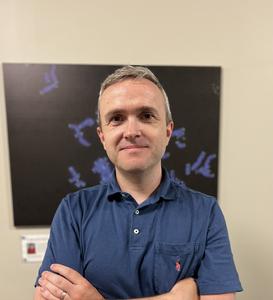Author Interviews, Cancer Research, University of Pittsburgh / 09.05.2024
UPMC Hillman Cancer Center Scientists Study How Telomere DNA is Damaged and Modified
MedicalResearch.com Interview with:
Roderick J. O’Sullivan PhD
Associate Professor
Department of Pharmacology and Chemical Biology
UPMC Hillman Cancer Center
University of Pittsburgh
Pittsburgh, PA
MedicalResearch.com: What is the background for this study?
Response: For a few years, my group has had the good fortune of collaborating with Dr. Ivan Ahel. Ivan is a world leader in the field of ADP-ribosylation. His work has identified major gaps in our understanding of ADP-ribosylation. This includes his lab discovering that DNA bases can be ADP-ribosylated in bacteria and that a poorly characterized enzyme known as TARG1 could be involved in that process. In discussing this work with Ivan, we were confident that DNA ADP-ribosylation also exists in human cells and that showing this could be pretty important. The problem was that identifying a part of the genome where it might be present, so we could study it, was not so obvious and challenging. But we had a hunch that telomeres could be one part of the genome where it could happen!!
Telomeres are really special structures located at the ends of each human chromosome. They demarcate the physical end of each chromosome and prevent chromosomes from becoming entangled – which if it happens, is catastrophic for cells. Our hunch was based on the evidence from other studies that telomeres are natural targets of PARP1, the enzyme that catalyzes most of the ADP-ribosylation in human cells. I then discussed this idea with Anne Wondisford, a medical scientist trainee in the lab, who liked the idea and designed a series of experiments to test it.
(more…)































